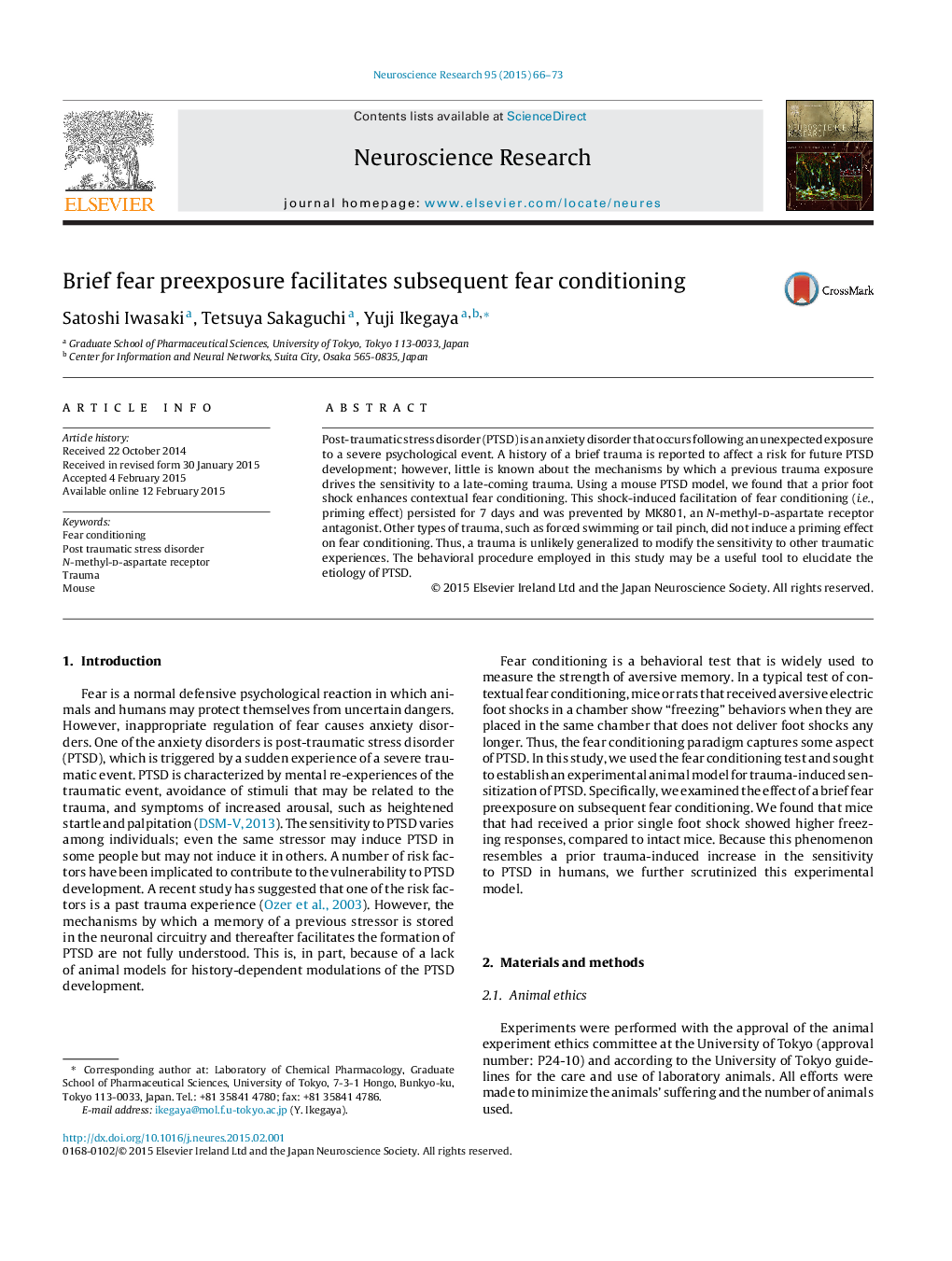| Article ID | Journal | Published Year | Pages | File Type |
|---|---|---|---|---|
| 6286117 | Neuroscience Research | 2015 | 8 Pages |
â¢A preceding foot shock enhances subsequent fear conditioning.â¢The effect of the preceding shock lasts for at least 7 days.â¢It was inhibited by an NMDA receptor antagonist.
Post-traumatic stress disorder (PTSD) is an anxiety disorder that occurs following an unexpected exposure to a severe psychological event. A history of a brief trauma is reported to affect a risk for future PTSD development; however, little is known about the mechanisms by which a previous trauma exposure drives the sensitivity to a late-coming trauma. Using a mouse PTSD model, we found that a prior foot shock enhances contextual fear conditioning. This shock-induced facilitation of fear conditioning (i.e., priming effect) persisted for 7 days and was prevented by MK801, an N-methyl-d-aspartate receptor antagonist. Other types of trauma, such as forced swimming or tail pinch, did not induce a priming effect on fear conditioning. Thus, a trauma is unlikely generalized to modify the sensitivity to other traumatic experiences. The behavioral procedure employed in this study may be a useful tool to elucidate the etiology of PTSD.
